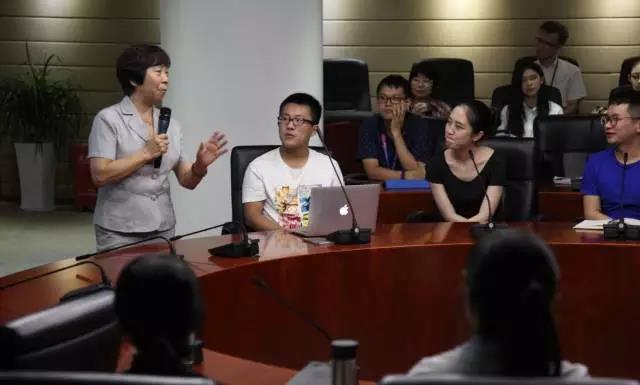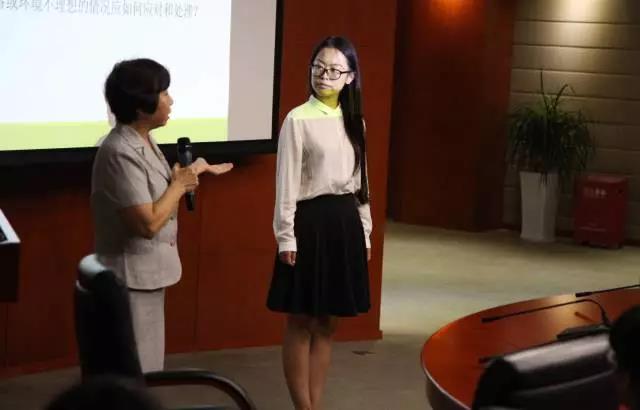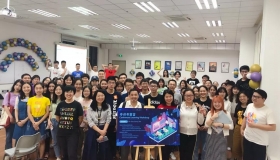Code of Conduct for Professional Interpreters
Prof. Liu obtained master and doctor degrees at the École Supérieure d'Interprètes et de Traducteurs, and has since been a French to Chinese consecutive and simultaneous interpreter. She is currently a member of the Committee of China Accreditation Test for Translators and Interpreters, a director of the Translators Association of China, and a member of the editorial board of China Translation. On this meeting, Prof. Liu shared with us in a vivid way her knowledge of interpreting, her experience as an interpreter, and the code of conduct of a professional interpreter.

Prof. Liu's speech touched upon various aspects of this profession, including details such as where interpreters should stand and how they should dress, and more general matters like the preparation part of an interpreting task. She did not simply explain to us how interpreters should behave orally. Rather, she invited students to the stage to simulate the actual process and scene of interpreting, so that students could have a better understanding of the code of conduct for professional interpreters. The 12-character guiding principle she proposed, literally meaning "challenge yourselves, serve others, and communicate the world", has inspired each to-be interpreters and translators sitting there listening to her.
Apart from that, Prof. Liu also mentioned the changes this profession has undergone in the past 30 years and its prospect. As technology evolves, interpreting methods, she suggested, are also changing - while the demand for legal interpreting, business interpreting, and medical interpreting is on the rise, remote interpreting, interpreting via the internet, and other kinds of interpreting will also increase.
Prof. Liu is indeed an expert in interpreting. With years of interpreting and teaching experience, she is not only an outstanding interpreter but also a wonderful teacher. She shared her way of teaching interpreting with us, such as how to achieve the goal of remembering 8-minute-long dialog at one time step by step. She understands that some students feel that interpreting training is too demanding, so she encourages us not to give up, because if we want to be a good interpreter, we have to be strict with ourselves.

This lecture is quite informative and enlightening. We've all learned a lot. For instance, through Prof. Liu's sharing, I knew that interpreters have opportunities to meet experts in various fields, and can even become experts in the fields for which they interpret. Also, I've realized the importance of manners to interpreters and determined to develop those good habits from now on. And I've born what Prof. Liu taught about interpreters' self-training method in mind, which will be helpful for our future study.
Prof. Liu has demonstrated to us what it is like to be an excellent interpreter. Whenever we feel like giving up, I think we can always gain strength and inspiration from her.




